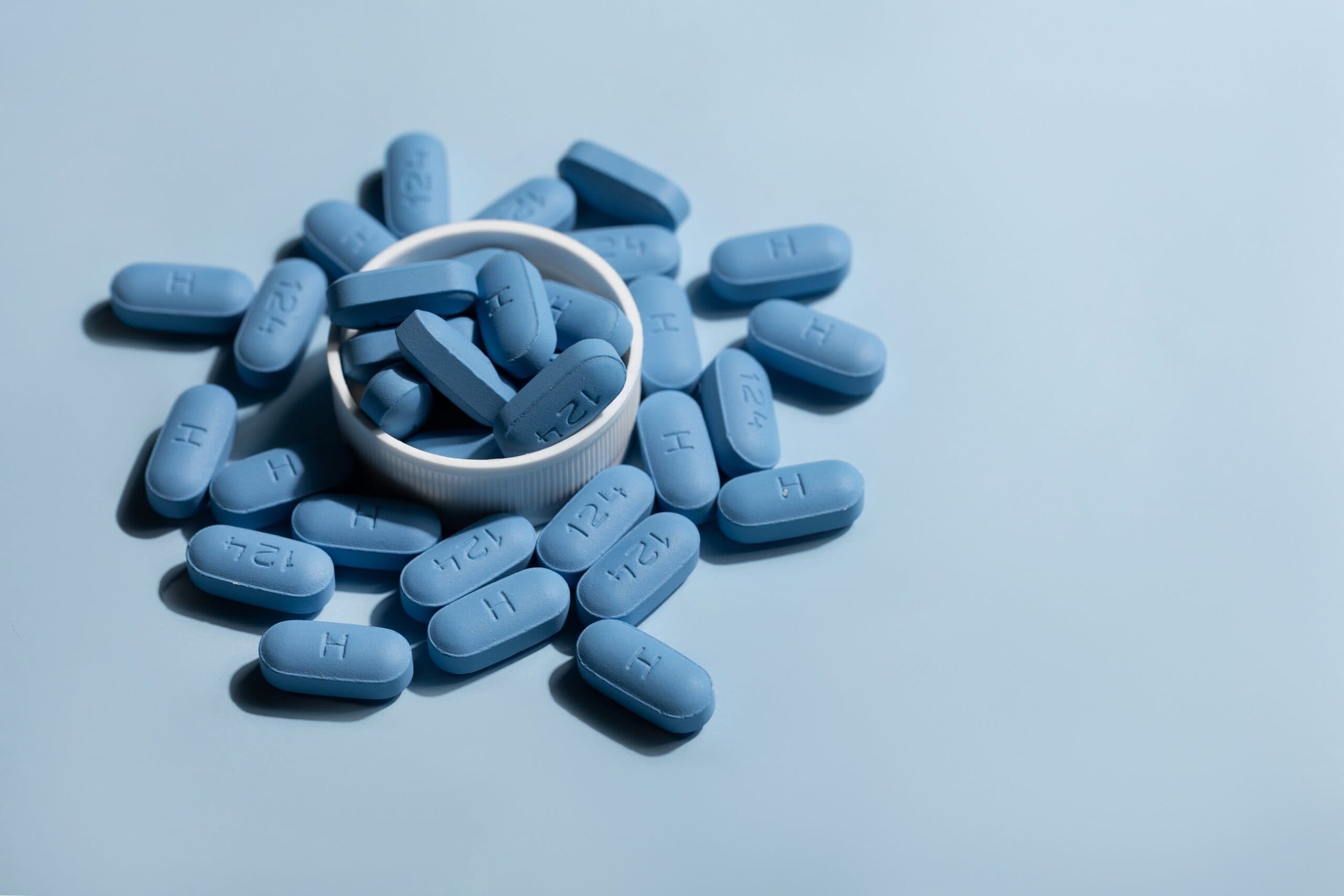Author
Media Contact
For general and media inquiries and to book our experts, please contact: pr@rstreet.org
Background
In 2021, Louisiana had 23 new HIV diagnoses per 100,000 people—a rate surpassed only by the District of Columbia and Georgia. That means 899 Louisianans learned they must now manage a lifelong illness. Despite Louisiana’s high rate of HIV diagnoses, in 2023, the Louisiana Department of Health (LDH) announced an 11 percent drop in new diagnoses over the preceding five-year period. This decrease is likely attributable in part to the 44 percent increase in pre-exposure prophylaxis (PrEP) uptake over the same period. PrEP is a medication that can decrease the likelihood of acquiring HIV from sex by 99 percent when taken as directed. At the state level, there is an association between higher PrEP use among people who could benefit from the medication and lower rates of HIV diagnosis—that is to say, HIV diagnoses decrease as PrEP coverage increases. Despite increased PrEP use in Louisiana, the state still lags behind others in PrEP use relative to the number of new diagnoses.
Many factors influence PrEP use at a population level; however, lack of access to medical providers is one barrier that prevents some people from using it. A growing number of states have passed policies that aim to address this challenge by allowing pharmacists to prescribe PrEP and post-exposure prophylaxis (PEP), a medication that can decrease the chance of getting HIV after being exposed to the virus if started within 72 hours.
During the 2024 legislative session, Louisiana State Rep. Wayne McMahen introduced HB579 authorized the development of rules allowing pharmacists to prescribe PrEP and PEP directly to patients. Rep. McMahen after serving on an HIV taskforce, where he learned about Louisiana’s high HIV rates and the relatively low utilization of PrEP and PEP. HB579 provides an interesting case study for states looking to advance similar legislation because it despite some community opposition.
Policy Process
Rep. McMahen introduced the bill during a House Health and Welfare Committee hearing, framing it as a way to increase access to medications that prevent HIV in a state with high rates of transmission. He also discussed the number of states that had already passed similar legislation, explaining that Louisiana would not be the first to implement this policy.
The original version of the bill differs somewhat from the version sent to the Governor’s office. Key changes related to implementation were as follows:
- The LDH, with guidance from an expert panel, will promulgate the rules governing pharmacist-prescribed PrEP and PEP rather than the Louisiana Board of Pharmacy.
- Pharmacists can only prescribe up to a 30-day supply of PrEP and a 28-day supply of PEP to people age 17 and older.
- Insurance providers are not mandated to reimburse pharmacists as in-network or preferred providers.
- Requirements for the pharmacist training program now specify that training must be completed before prescribing PrEP or PEP and include different instructions for the LDH to follow when developing the program.
Many of these changes resulted from stakeholder feedback, primarily from the medical community. Despite Rep. McMahen’s willingness to work with stakeholders, the most vocal critic of the bill—a physicians’ advocacy group called Louisiana Physicians for Patients—expressed several concerns. The group worried about how the longitudinal care required for patients to remain on PrEP would be delivered, the original bill’s stipulation that the Board of Pharmacy promulgate the rules, and the lack of program evaluation requirements. Though amendments addressed some of these concerns, the group never withdrew their objection to the bill. Support outweighed a dwindling opposition as the bill progressed, with major pharmacy chains registering their support and with Louisiana retail associations and the Louisiana State Medical Society ultimately withdrawing their opposition.
Another point worth noting is that policymakers indicated their willingness to work with Rep. McMahen to add amendments or tweak language throughout the legislative process. His reputation as hardworking and dedicated doubtlessly influenced this. Another indication of the legislature’s support was that 23 representatives elected to be listed as coauthors.
Key Takeaways
- Educating policymakers about the burden of HIV in their state and ways to prevent it can be key in getting them to sponsor legislation. Engaging them in taskforces or working groups can help build support.
- Engage key stakeholders early and often with a willingness to compromise.
- Court the support of organizations representing other medical providers, particularly physicians
- Consider the best way to frame the bill. Rep. McMahen often referred to HB579 as an “access” or “framework” bill to emphasize that the legislature was only instructing the LDH to create rules that would reflect guidance from medical experts.
- If legislative rules allow, bring an expert (preferably a pharmacist with experience in HIV prevention) to hearings to answer any technical questions.
Conclusion
Because passing pharmacist-prescribed PrEP and PEP legislation involves health care and health care providers, it may be scrutinized from many different angles. Identifying all parties potentially affected by the legislation and inviting their feedback before hearings can help minimize potential public opposition. While each state that attempts to pass similar legislation will have to manage different objections, stakeholders, and legislative dynamics, HB579 is an example of a situation in which compromise prevailed.

Pharmacist-Prescribed Medications to Prevent HIV
Medicines known as pre-exposure prophylaxis (PrEP) and post-exposure prophylaxis (PEP), are underutilized. Learn how these three states passed pharmacist prescribed PrEP and/or PEP legislation.
